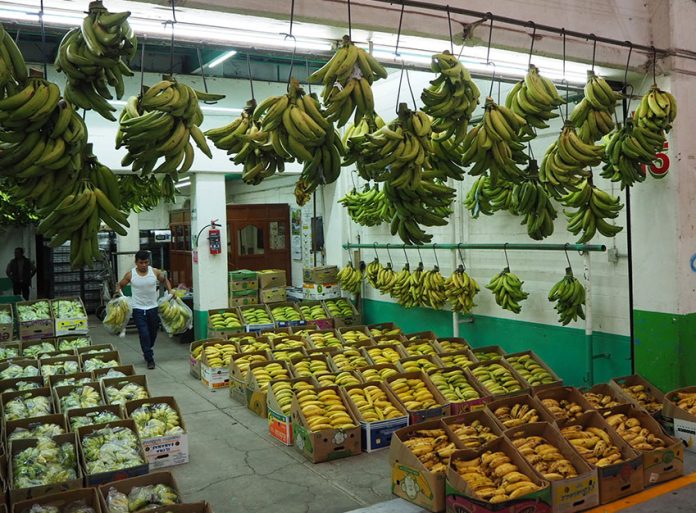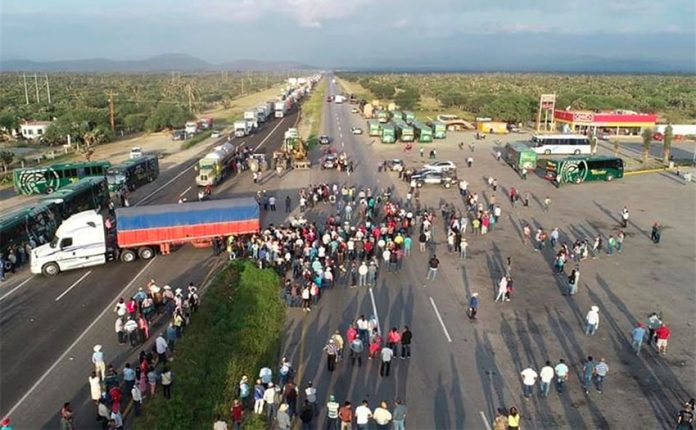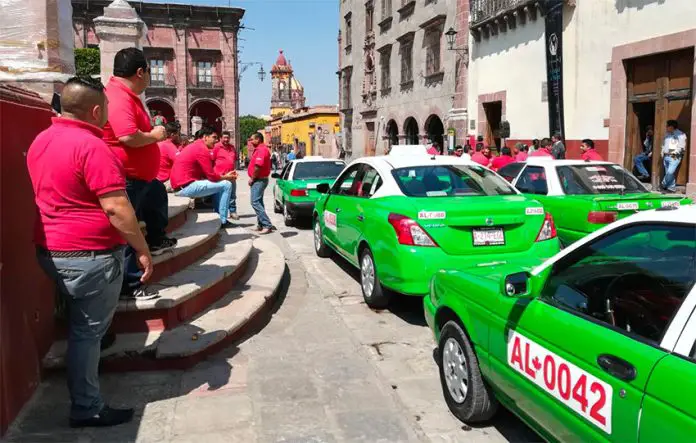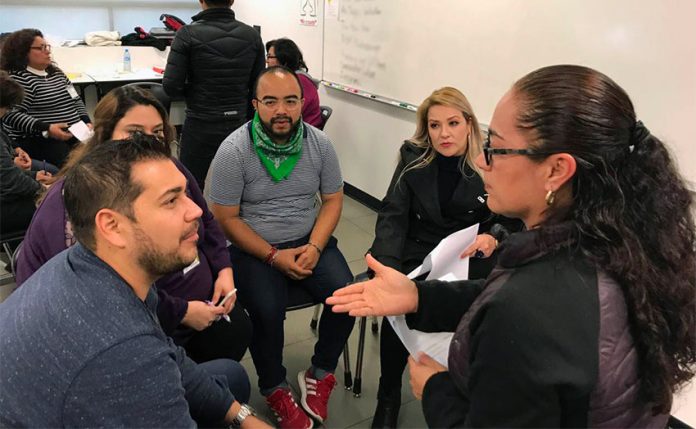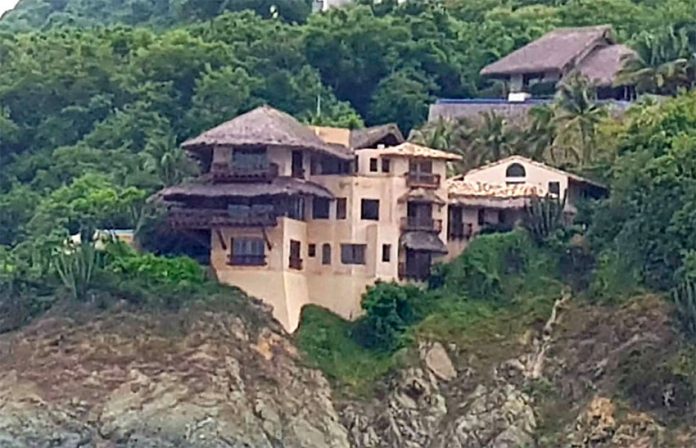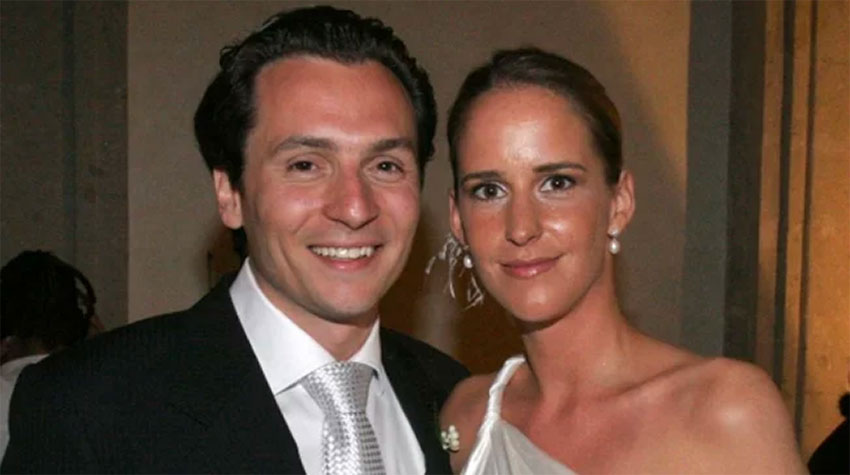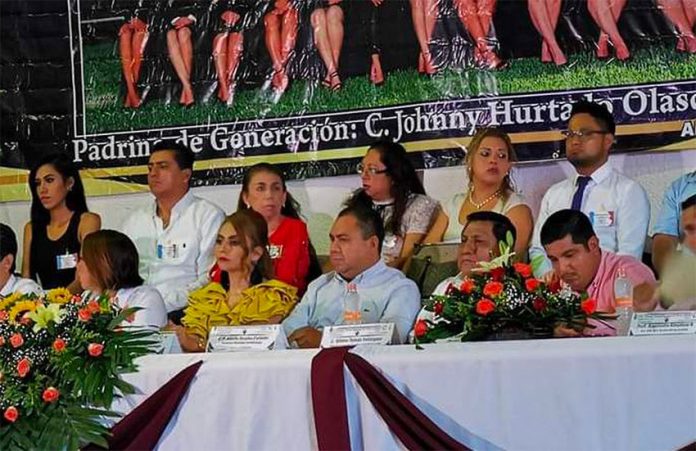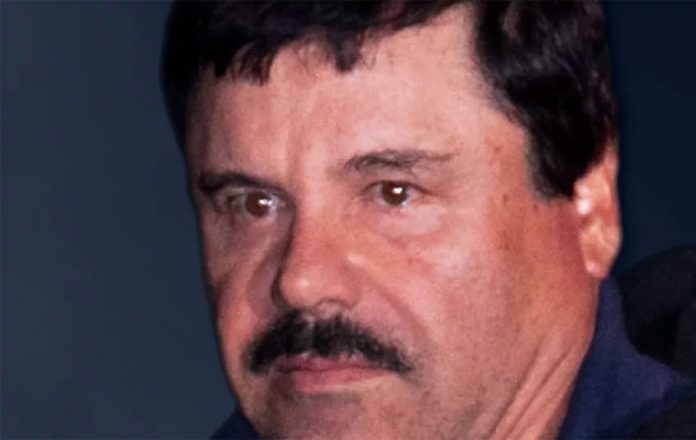The biggest market in Mexico City provides an estimated 80% of its food and it can be an overwhelming but exciting experience to watch the market’s controlled chaos.
Entering through 10-peso toll gates, the market finally comes to an end at a parking lot between the two main buildings — nearly a kilometer away.
It’s a miracle anyone can exit the parking lot with cars parked tightly at oblique angles.
Central de Abasto is open 24/7 and specializes in fruits, vegetables and packaged goods by the tonne, but also dispenses to smaller markets and individual retail clients.
The north building offers abarrotes (packaged goods); the south, mostly fruits and vegetables. A veritable highway of traffic moves between them, leading to giant stacked parking garages and loading docks that run through the interior rows of the market.
Cart sellers, market vendors and restaurateurs load their purchases into beat-up VW buses, tiny two-door hatchbacks and huge cargo vans — bags of potatoes and limes, plastic-wrapped crates of mayonnaise; loads of giant Corona cups, chamoy mixes and the colorful powders used to make psychedelic micheladas.
Central de Abasto opened in Colonia Iztapalapa in 1982 to alleviate stress on La Merced, the previous wholesale market, that had grown into neighboring streets, creating heavy congestion through the center of the city.
The new market houses over 2,000 businesses covering a whopping 328 hectares.
The main building runs 2,250 meters along its five passageways, with eight minor rows (lettered “I” through “X”) running about two-thirds of that distance from east to west. The hand carts, shopping carts and pallet jacks zoom through intersections with the carretilleros (hand-cart drivers) generally receiving the right of way.
It’s an underground city unto itself with bank branches, cell phone shops, Oxxos and gambling parlors — a city that comes up for air every couple of blocks where the passageways rise in concrete hills to overlook the loading docks. Carretilleros sprint hard up each hill, moving hundreds of kilos at a time, and stop for a breath before going down the other side, fighting the pull of gravity.
Central de Abasto moves around 30,000 tonnes of food a day. The major passageways teem with hand carts flying past.
At the top of each concrete hill, truckers look out onto the docks to see if their trailers might be loaded and ready, or if there’s still time to kill. Staff spend such a huge part of their lives in the market that there are plenty of distractions and amenities to fill the time — showers, video game parlors, liquor stores and gift shops.
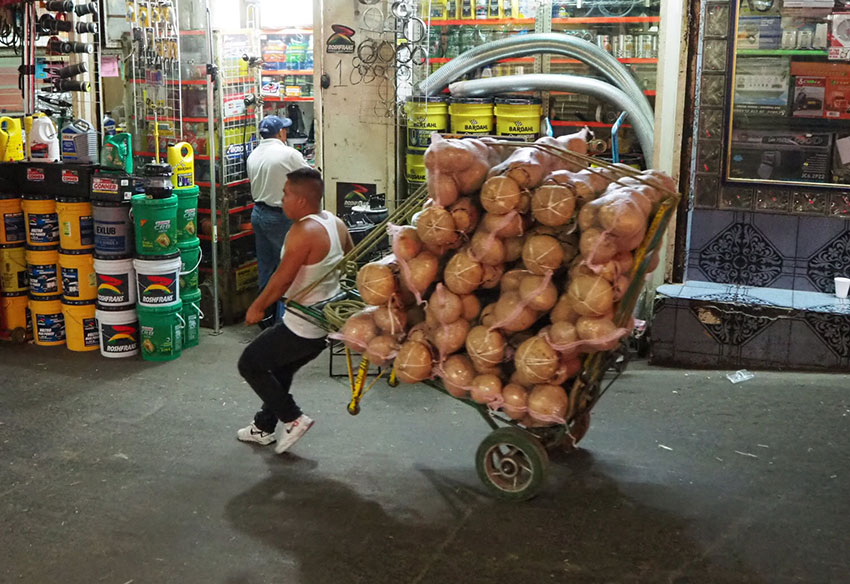
Electronics stores push showy LEDs and the perfect stereo to help truckers make it through the long hauls. Carts sell flashy reflective decals to boast of one’s special interests, be they sports teams, naked ladies or Christ bleeding through his crown of thorns.
Women walk by with trays on their heads loaded with plates to deliver hot food throughout the market or return with stacked empties. Rows of cart drivers wait for a gig, chatting with friends, playing games on their phones or straight up napping on their feet, leaning against their carts.
Cops roll slowly along on golf carts looking for troublemakers — two seated in front and one holding a handrail in back, ready to tackle-dive a runner. And all the while, the carretilleros blast along, loudly whistling to let everyone ahead know to “get outta the way.” You need a good whistle to handle a cart at Central de Abasto.
Despite the chaos, the lanes are wide. It’s actually a pleasant experience to wander with a camera around your neck, looking like a tourist. No one bothers you hollering to make a sale. They know you’re not planning to fill a truck with tomatoes.
In the high-lettered rows of the main building, the chaos subsides and the air cools. It’s early afternoon and a potato salesman — two happy cats napping behind him — tells me it doesn’t get busy through here until around midnight. He distributes mostly to sellers at smaller markets or grocery stores, and there’s no point for them to fight the traffic.
In Row WX, bananas hang on hooks in double bunches, as if still growing. The hung fruit is moved to scales for weighing. Boxes, crates and bunches of bananas — most of them running from green to yellow in ripeness — are stacked everywhere. Some are tiny, plantains, of course. Others are purple — actually red bananas.
The smell is nice, if banana is your thing. It’s like being sealed in a plastic bag with them or hiking through the jungle, hacking them down with a machete.
The workers stack crates or stand ready for service, while the boss man sits at a desk, notepad in hand, usually smoking. He looks ready to chew someone out. Behind each floor display is a modest warehouse with more and more crates and pallets that leads to the open-air loading dock behind.
I ask a smiling, mustachioed banana employee, what sets his product apart.
“They’re from Chiapas,” he says in a charming, soft-spoken voice. His name is Fortunato Ornelas and he’s been at Central de Abasto for 30 years. “A lot of them here are from Tabasco,” he continues. “Bananas from Chiapas are sweeter. They’re the ones with the pointy tips.”
Two kids cruise by on a pallet jack, riding it like a giant steel stand-up go-kart. There are skateboards and scooters. It’s the kind of massive space that begs for transportation. A fat guy passes riding a motorcycle, taking up most of the passage, moving so slowly it seems as if he might topple over.
At the loading docks, dump trucks full of oranges sit parked with their front wheels up on metal ramps. A worker shovels out the oranges while another sorts and guides them onto chutes leading into the bowels of the market where they’ll later be moved to distribution centers.
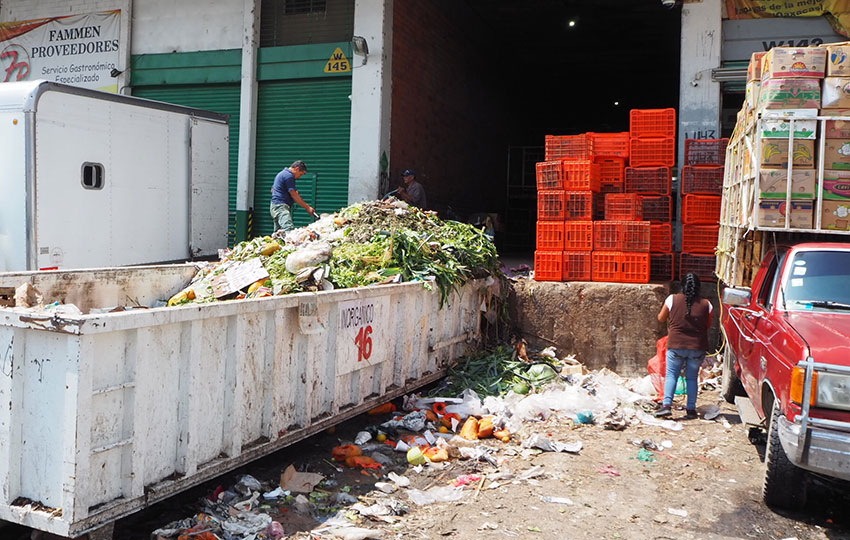
The surrounding runway is a mess of smashed watermelons, overripe oranges and errant piles of soybeans. It’s like the aftermath of an epic food fight. Men shovel dead produce into truck- bed dumpsters, while ladies sort through piles of vegetal “trash,” looking for something that’s still edible.
Hand-painted murals above the warehouses show each business’s personality: smiling bananas play football with kids; mangos and apples dutifully fill warehouse carts; an orange maniacally peels off its own skin; and a bloodthirsty buccaneer carries a bunch of bananas over his back like a fresh kill.
Back along Pasillo 3, the main artery running to the crazed retail end of the market, three dogs meander, calmly searching for a snack. Curtains cover a video gambling parlor, presumably so you can’t see who’s slacking off. People wolf down tortas, the meal of choice at Central de Abasto — serious fuel for a long day (or night) of work. And the carretilleros never tire, hoofing into nearly thankless oblivion.
The market does have its problems. The amount of trash created is astounding, and surrounding neighborhoods complain of dumpster-sized piles appearing on their streets overnight. There’s petty theft and drug sales, as well as the constant threat of merchant kidnapping or theft by organized crime, not to mention underage prostitution because of the demand the market creates.
I politely ask a patrolling policeman if he might be willing to chat with me on the subject, expecting a firm rejection. But he’s come prepared to talk, ready to dive into a full-on diatribe about the status of cops and their general relationship with the market.
“I’m here to watch over everything,” he tells me. “Some people are like, ‘Hey, poli — what are you doing?’’ he says in a mocking voice. “‘Hey poli — what do you want?’ I make my rounds and keep an eye on things. I’m here to keep people out of danger.”
“A lot of people don’t like police,” he continues. “But what would happen in society if there weren’t police?”
“This place is my second home,” he says. “I watch over it.”
In a vast, faceless city like Central de Abasto, sometimes the only pat on the back you’re likely to get is from your own hand.
• Central de Abasto is located on Canal Río Churubusco with its own Federal Zone in Izstapalapa, Mexico City, and is open 24 hours a day, 365 days a year.
This is the 18th in a series on the bazaars, flea markets and markets of Mexico City:
- Black Saturdays at the Punk Market: Tianguis Cultural del Chopo
- At this market are Mexico City’s best murals, which almost no one visits
- Mexico City’s Mercado Medellín, Colonia Roma’s best old-school market
- This mega thrift market said to be the biggest street market in Latin America
- How to find your way through the massive Mercado de la Merced
- From knick-knacks to treasure maps at Portales Antiques Flea Market
- Mercado Martínez de la Torre one of the best food markets in Mexico City
- Choose your adventure of history, gastronomy or art at Saturday Bazaar
- Collected artistic traditions of Mexico are under one roof at this city market
- Sharpen your bargaining skills at the best little antiques market
- Mexico City’s most colorful market is Mercado Jamaica, the flower market
- You’ll find art at Mercado Coyoacán, but the main attraction is food
- MercadoRoma, a Mexican public market reimagined for the 21st century
- Tuesdays in Taxqueña, the flea market of musical brotherhood
- Escandón Market is quintessential middle-class CDMX neighborhood market
- A walk through the Mexico City markets of Colonia La Condesa
- The San Juan market, Mexico City’s epicenter for culinary inquisition
